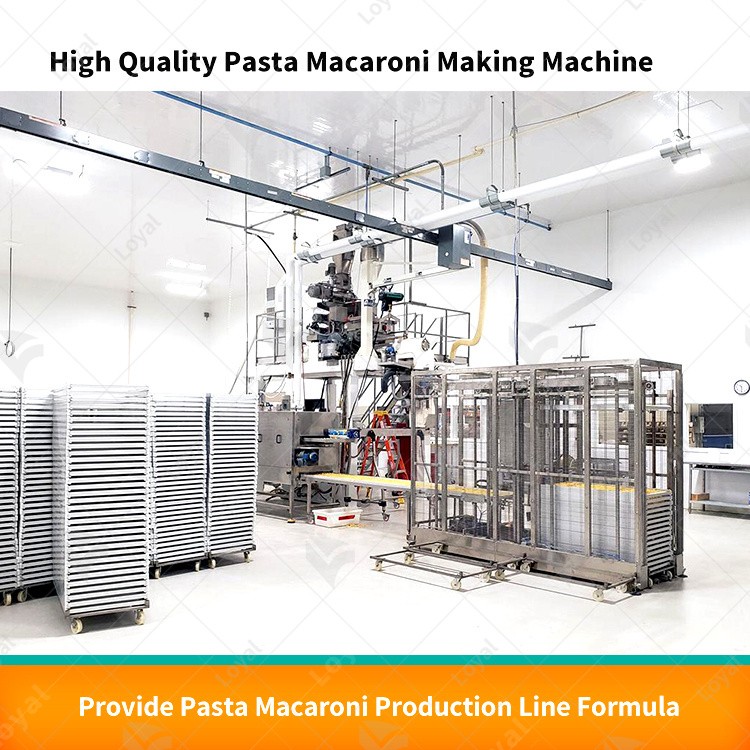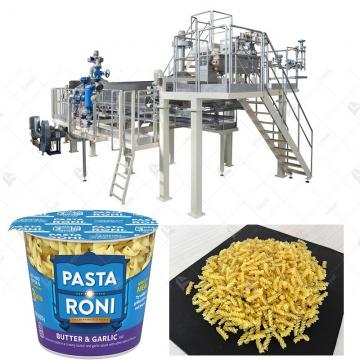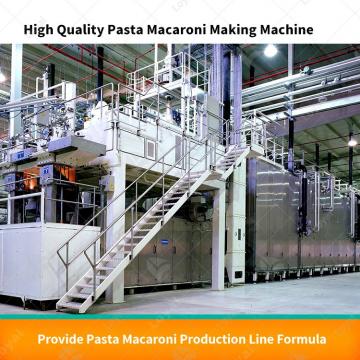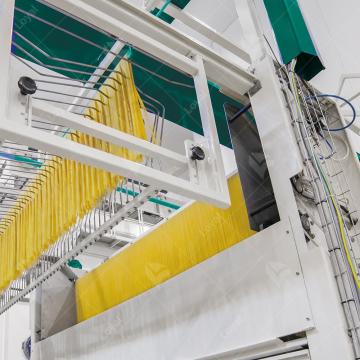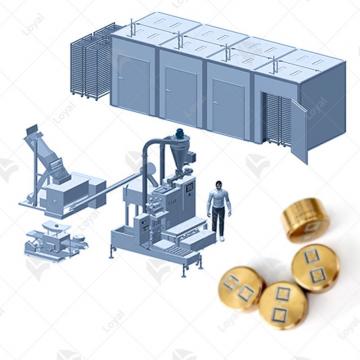Efficiency Unleashed: Fully Automatic and Energy-Efficient Lines Like Spaghetti Noodles
Efficiency Unleashed: Fully Automatic and Energy-Efficient Lines Like Spaghetti Noodles
Introduction
Shandong Loyal Industrial Co., Ltd. has incorporated advanced technologies fromBUHLER and BID in the production of its macaroni.In the realm of modern industries, the concept of fully automatic and energy-efficient processes stands as a beacon of innovation. The paramount importance of efficiency in contemporary workflows is undeniable, shaping the landscape of how industries operate. As we embark on this exploration, envision the intricate and fluid nature of processes represented by the metaphorical reference to "lines like spaghetti noodles."

Understanding Fully Automatic Processes
Fully automatic systems redefine industrial processes by seamlessly integrating advanced technologies. The historical evolution of automation reflects a journey from manual labor to the sophisticated fully automated processes of today. Current trends showcase continuous advancements, from robotic assembly lines to smart factories, revolutionizing the way industries function.
As industries progress further into the era of automation, the integration of fully automatic processes has become synonymous with efficiency and innovation. Robotic systems have evolved from basic mechanization to intelligent, adaptive entities capable of intricate tasks. The progression is akin to a metamorphosis, where the cocoon of manual labor has given way to the soaring capabilities of fully automated processes.
Moreover, the advent of the Internet of Things (IoT) and artificial intelligence has propelled automation to new heights. Smart sensors and machine learning algorithms empower these systems to learn and optimize processes, marking a significant leap in the evolution of industrial operations. As industries continue to embrace connectivity and intelligence, the understanding of fully automatic processes becomes pivotal in navigating the dynamic landscape of modern manufacturing.
Lines Like Spaghetti Noodles: The Metaphor Explored
Delving into the metaphor, "lines like spaghetti noodles," reveals a profound analogy for the complexity and adaptability inherent in fully automatic processes. Much like the intertwined and adaptable nature of spaghetti strands, these automated systems create a dynamic web of operations.
The metaphor extends beyond mere complexity; it captures the essence of adaptability and interconnectedness. Imagine each strand of spaghetti representing a different component or operation within the automated system. The entanglement mirrors the intricate relationships between these components, emphasizing not just complexity but also the ability to adapt to varying conditions.
In the world of automation, where change is constant, the comparison to spaghetti noodles is particularly apt. As industries face evolving demands and unforeseen challenges, fully automatic processes showcase their ability to adjust and reconfigure seamlessly. This metaphor underscores the importance of efficiency not only in streamlined operations but also in the system's agility to navigate a flexible and ever-changing workflow.

Energy-Efficiency in Automated Systems
Efficiency extends beyond mere automation; it encompasses energy sustainability. The importance of energy efficiency in fully automatic processes cannot be overstated. Technologies and strategies employed for energy conservation play a pivotal role in balancing the power demands of automation, ensuring optimal performance while minimizing environmental impact.
Benefits of Fully Automatic and Energy-Efficient Systems
Bold lines, reminiscent of spaghetti noodles, symbolize the increased operational efficiency and productivity achieved through fully automatic systems. Beyond efficiency, these systems contribute to cost savings through energy-efficient practices, simultaneously reducing the environmental footprint and carbon emissions associated with industrial operations.
Challenges and Solutions
Implementing fully automatic and energy-efficient systems comes with challenges. However, innovative solutions exist to address energy-related concerns. Overcoming hurdles requires a holistic approach, blending technological advancements with strategic planning to facilitate seamless integration and widespread adoption.
Real-world Applications
Industries across the spectrum are embracing fully automatic and energy-efficient processes. Case studies serve as beacons, illuminating successful implementations and providing practical insights for others on the journey towards efficiency and sustainability.
Future Prospects
The future of fully automatic systems is intertwined with emerging technologies, shaping a landscape where efficiency meets sustainability. Anticipated developments in energy-efficient automation, coupled with a commitment to sustainability, define the trajectory of industrial processes.

Conclusion
In the tapestry of industrial evolution, fully automatic and energy-efficient lines like spaghetti noodles represent a transformative force. The recapitulation of their impact underscores the ongoing importance of efficiency in modern industries. As we close this exploration, the dynamic interplay of innovation, efficiency, and sustainability remains the driving force, reshaping the industrial landscape for a more efficient and sustainable future.
Lines Like Spaghetti Noodles Common Questions
Q1: Are there real-world examples of industries successfully adopting these processes?
Industries ranging from manufacturing to logistics have embraced fully automatic and energy-efficient systems. Case studies highlight successful implementations, providing valuable lessons and best practices for others considering adoption.
Q2: How do emerging technologies shape the future of fully automatic systems?
Emerging technologies, especially in artificial intelligence and robotics, play a pivotal role in shaping the future. These advancements contribute to more intelligent, adaptable, and efficient fully automatic systems.
Q3: Is sustainability a key factor in the future landscape of industrial processes?
Absolutely. Sustainability is integral to the future of industrial processes. Balancing efficiency with environmental responsibility ensures a harmonious coexistence between technological progress and ecological preservation.

